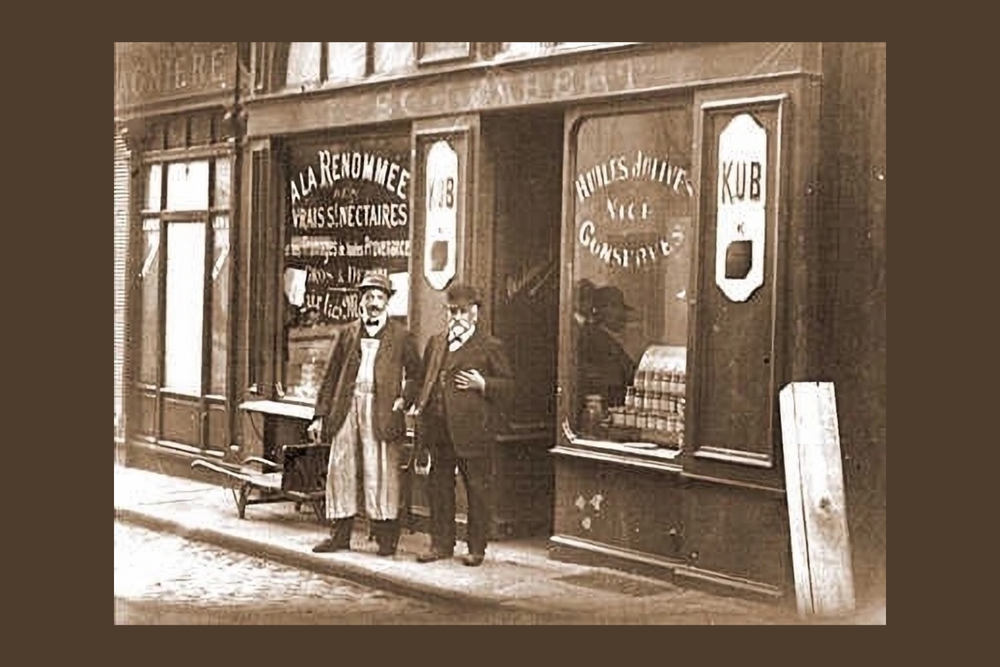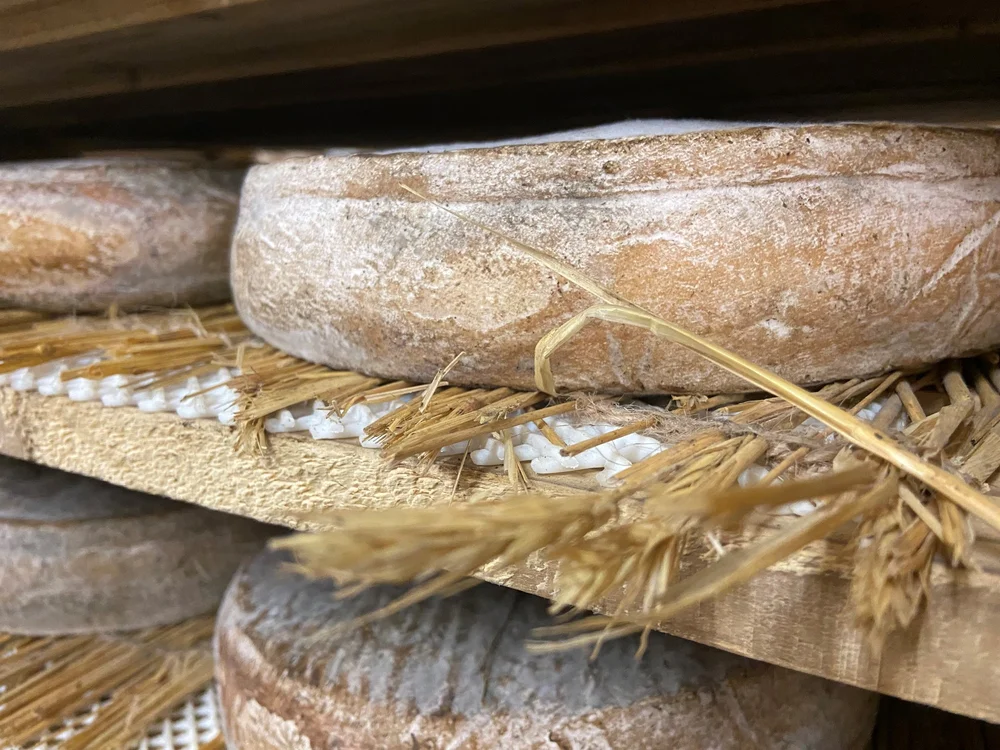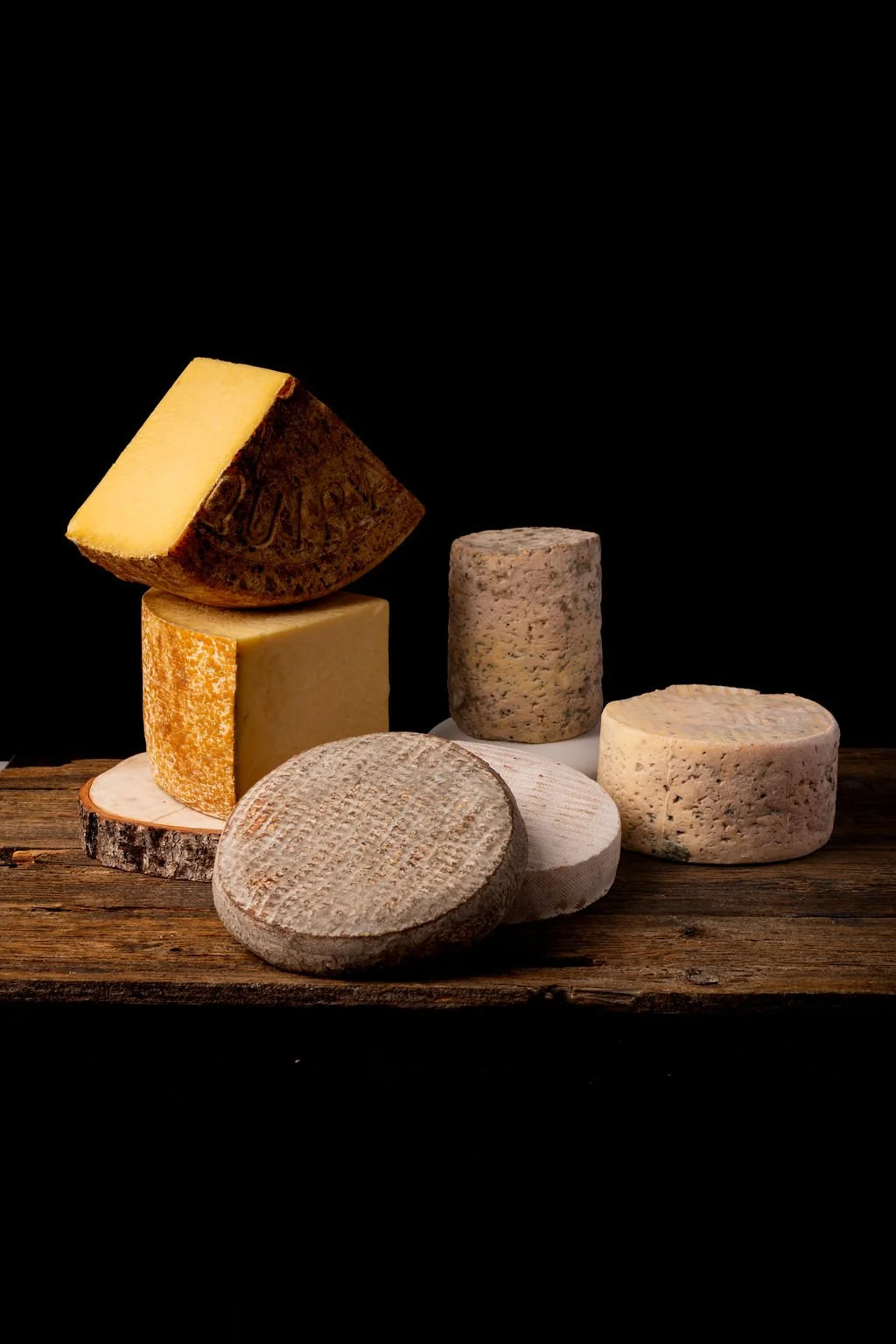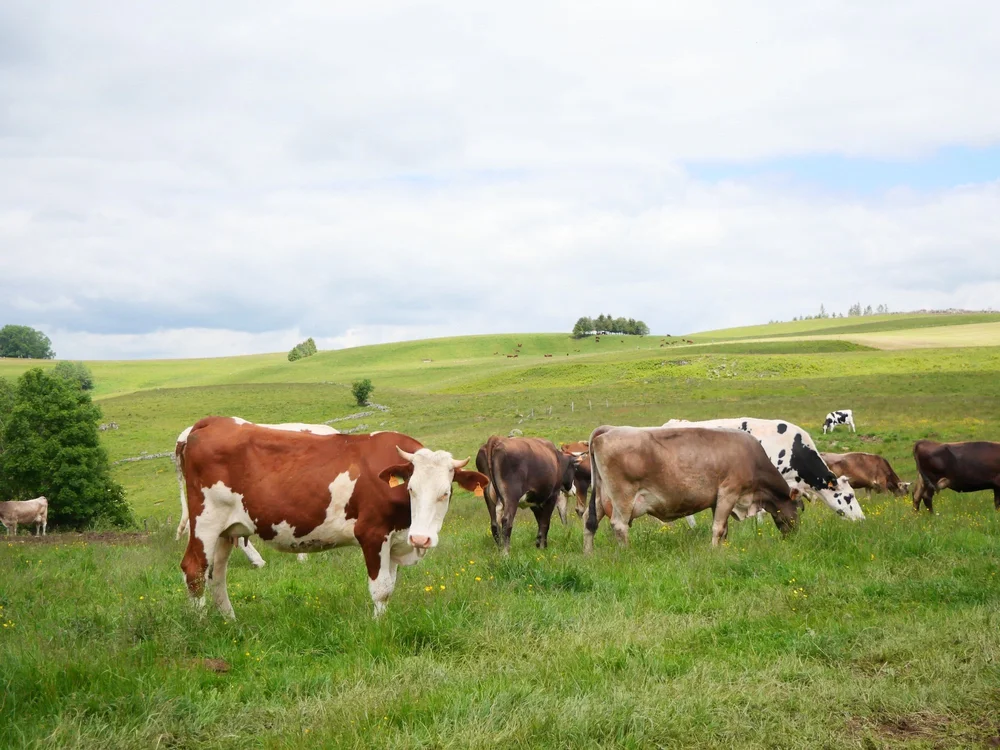The Dischamp cheese boutique and retail shop
In today’s fast paced and ever evolving world, companies come and go “like streetcars” to coin a phrase. Even more so for food businesses, many of which struggle just to stay afloat in a world of constantly shifting consumer preferences and trends. Which goes to show why Fromageries Paul Dischamp’s one hundred-plus year tenure as a major force in specialty cheeses is so impressive. I had the pleasure of speaking with Francois Dischamp, the company’s export coordinator, regarding their history in France’s rugged Auvergne region. A fertile land steeped in cheese production for some two thousand years, the Auvergne is home to a number of France’s great AOC cheeses, such as St. Nectaire, Cantal, and most notably Salers, arguably the king of traditional French farmstead cheeses.
Original Dischamp shop
It was Francois’ great grandfather Jean Dischamp that founded the business in the region’s capital city of Clermont-Ferrand in 1904. And although his street-level retail cheese shop was doing a brisk business, it was the subterranean ripening caves that formed the foundation of the Dischamp brand as a leader in the ripening of St. Nectaire fermier (the raw milk farmstead version). The cellar was composed largely of the mineral rich volcanic stone and soil that the region is known for. That unique local terroir, combined with the ideal temperature and moisture conditions allowed Jean to perfectly ripen his wheels, bringing out the best in the cheeses entrusted to him by local producers.
Jean continued to serve his loyal client base at his village location before handing the reins over to his son Paul in 1941, who seized an opportunity to merge the growing Dischamp brand with his father in law’s dairy in the town of Sayat. This new location provided both excellent ripening conditions and growth potential, and before long the Dischamp brand came to be recognized as a leader in the ripening of St. Nectaire.
Jean-Luc Dischamp
The Second Generation Leads Expansion Efforts
The reputation and success of the Dischamp brand continued to grow over the years to a level that any independent family businesses would have been more than content to remain at. However in the late 70’s, Paul’s enterprising young son Jean-Luc joined the fold, and they began to turn their attention towards cheese manufacturing under their own name. This culminated in the opening of their own production facility for Cantal cheeses in 1989, followed by the acquisition of an existing dairy in St. Nectaire in 2007.
Auvergnat Cheeses
Francois and Arnauld Dischamp
Today the company continues to ripen cheeses for others, and also produces a full line of classic Auvergnat cheeses under the Paul Dischamp label, which are consumed throughout the world. Currently the Sayat facility is used exclusively for the maturing of St. Nectaire fermier and Salers. Both the raw milk and pasteurized versions of Cantal are produced and ripened at a state of the art plant in St. Flour. The St. Nectaire facility is now used for the production of St. Nectaire laitier (the pasteurized dairy version); Bleu d’ Auvergne; and Fourme d ‘Ambert, as well as other Auvergne cheese specialties and preparations. And in a long-awaited return to their cheese-shop roots , they have recently opened a stunning state of the art cheese boutique in Saint-Flour.
St.Nectaire fermier ripening on traditional straw mats photo credit Fromagerie Paul Dischamp
St. Nectaire
Raw milk St. Nectaire is rarely seen in the U.S. given that it is typically aged between 28 and 45 days. Nonetheless, Dischamp’s pasteurized version is a delightfully creamy semi-soft wheel with a gentle flavor; fruity with a well balanced earthiness it is a respectable and delicious cheese in its own right. It is in my opinion the best of the pasteurized versions by far. Read more about St. Nectaire cheese.
The Dischamp cheese range, left to right: top left, Salers; bottom left: Cantal; St. Nectare fermier; St. Nectaire laitier; Fourme d’Ambert; Blue d’Auvergne. Photo credit: Fromagerie Paul Dischamp _ St. Nectare fermier_ St. Nectaire laitier_ Fourme d’Ambert_ Blue d’Auvergne, photo credit Fromagerie Paul Dischamp.jpeg?format=1000w)
Cantal
Cantal is one of the world’s oldest cheeses and the oldest in the Auvergne, dating back to early Gallo-Roman times. It is believed that visiting French monks taught the English the “milled-curd” technique used in making Cantal ( essentially a process whereby newly formed curd slabs are cut into very small pieces, salted , and compacted again into a solid form) thus paving the way for what eventually was to become Cheddar cheese. Dischamp offers their Cantal in a range of ages, as do most producers in the region. Their young Cantal offers a clean buttery lactic flavor and friable texture. An extremely popular cheese in France , it is somewhat harder to come by here. I firmly believe that given greater exposure and sufficient promotion that it could replace younger cheddars as a great everyday cheese for U.S. consumers.
Salers
Far deeper in flavor and greater in age, their Salers is a true epiphany. A raw milk farmhouse cheese, Salers can only be produced between April 15th and November 15th. Only the milk of the Salers breed of cow whose diet consists of the verdant summer grasses and diverse mountain flora can be used. The complex and often piquant flavors found in Salers are due largely in part to the milk that is naturally cultured in the gerle; the traditional wooden vat impregnated with the beneficial bacteria from previous cheesemaking that is so essential to the ripening process of this regal cheese.
A Family Heritage
Cows afield
In speaking with Francois it became abundantly clear to me that monetary gain has never been the driving force behind the company, despite their considerable commercial success. A former marketing professional living in Switzerland, it was his love of the Auvergne that drew him back to his home and the family business. He speaks proudly of his family’s accomplishments, and their long history in the region. When we spoke for this piece he did not feel compelled to talk about sales volumes, but rather of the “ambience de cave” that Dischamp brings to each wheel of cheese that they age; of their dedication to quality; and of the camaraderie that he shares with his fellow Auvergnat cheese producers. Today ,Francois and his brother Arnauld remain dedicated to maintaining the commitment to quality that began with their humble family shop over one hundred years ago.
Fromageries Paul Dischamp is so much more than just a successful business. It is a story of the Auvergne, and a tradition of cheesemaking that began with Cantal thousands of years ago; a tradition that continues to be a cornerstone of the region’s history, commerce, and local flavor to this day.
